Arguments for a vestibule
Protection from cold and wind
Perhaps the most common argument in favor of a vestibule is that it perfectly protects the living space from drafts and cold from the street. The fact is that when you open the door leading to the street, cold air inevitably gets into the room, the flow of which is also amplified by the difference in pressure outside and inside.
Such gusts of cold wind are extremely unpleasant, especially if they happen regularly. To prevent this from happening, a vestibule is often built in country houses, which acts as a kind of gateway and barrier between the cold street and the warm house.
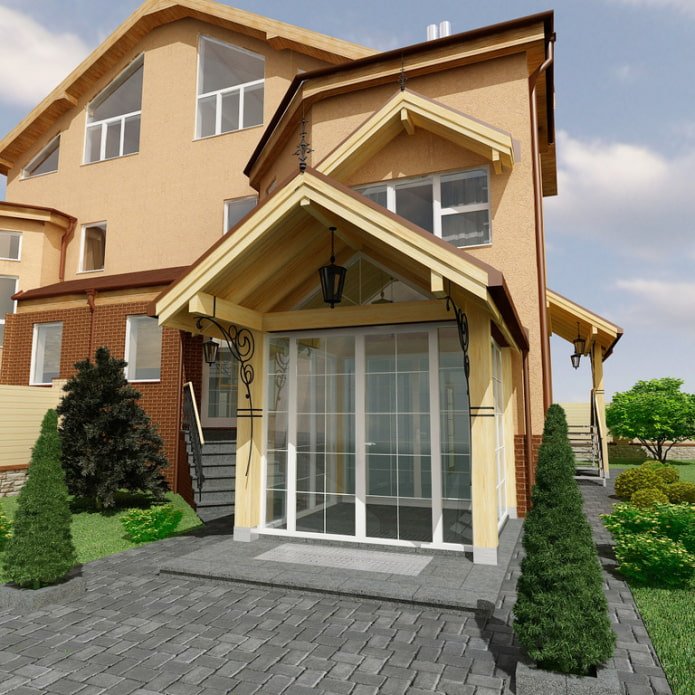
Auxiliary space for shoes and clothes
If the vestibule is large enough, it can be used to store outerwear and shoes. This is especially important in bad weather, when a lot of water, dirt or snow remains on clothes, which, in the absence of a vestibule, are carried throughout the house.
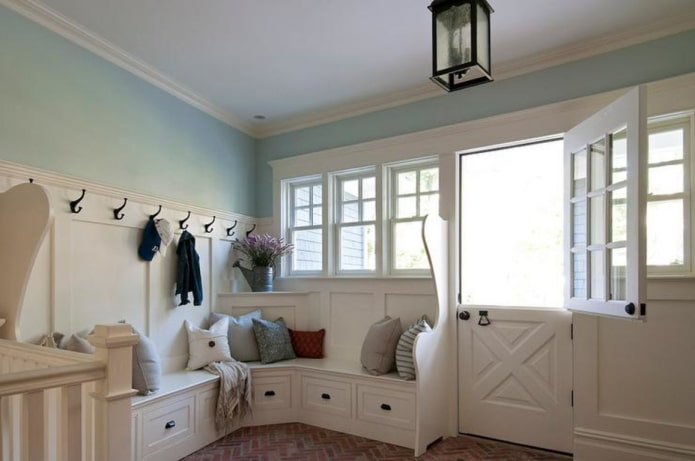
Protection from thieves
It is worth saying that, in addition to protection from drafts, a vestibule can protect a house from thieves. The fact is that before “going to work”, thieves often pre-evaluate the door locks. If the house has a vestibule, the thief will not be able to see the lock on the inner door before he gets into the vestibule.
However, it is worth noting that this argument in favor of the vestibule is quite overestimated, because suburban thieves are not as limited in time as their city colleagues, and are less likely to retreat when they see an unexpected obstacle. In addition, country houses rarely have bars on the windows, so often burglars do not even bother breaking the door, but simply break the window.
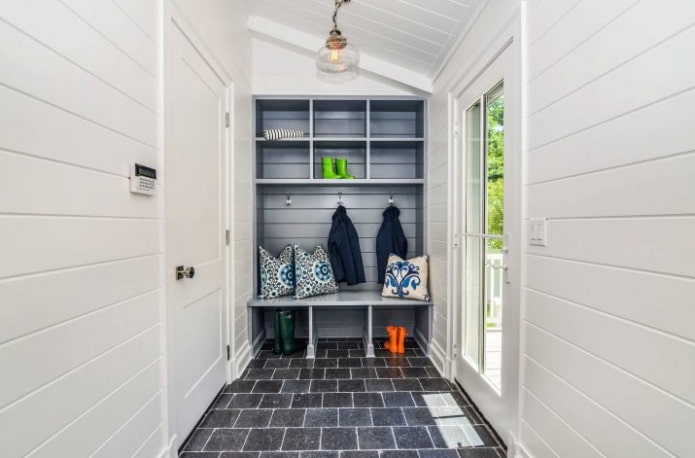
Arguments against the vestibule
A relic of the past
If we talk about arguments against the vestibule, then it is worth remembering its historical past. It just so happened that our ancestors could not lock themselves in their huts for the whole winter. Even in the most severe frosts, they had to leave the house, for example, to chop wood for the stove, feed the cattle or bring water. This led to the fact that one of the family members was constantly entering the house or, conversely, leaving it.
As a result, with each opening of the door, cold air entered the house. Modern country dwellers keep livestock on the plot much less often, and try to arrange all the main rooms and amenities in the house. In turn, this led to the fact that residents began to go outside less often, and heat losses that occurred due to the constant opening of the door naturally decreased.
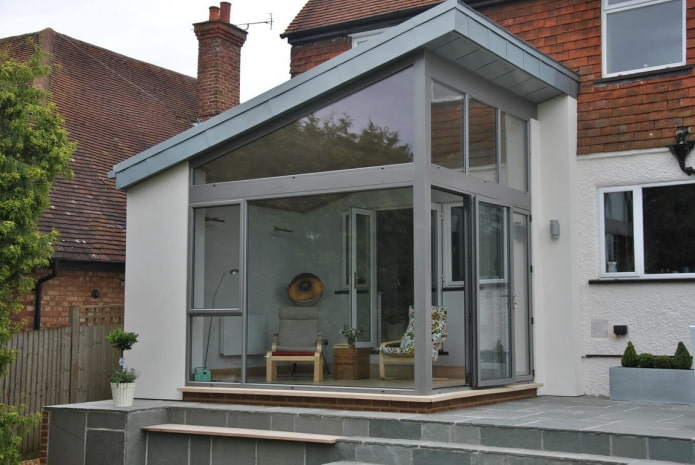
Dubious efficiency
Without going too far from the topic of the historical past, it is worth remembering what kind of heating system our distant ancestors used, namely the traditional Russian stove. I think there is no need to explain that such a stove had low efficiency in terms of heating. At the same time, there were no more efficient ways to heat a house back then. Therefore, it was much more important for our ancestors to keep the house warm.
The situation is completely different now, modern heaters, if located in the right places and in the right quantity, are able to raise the temperature in the house to the desired level in a few hours, and compensate for the “wandering” flow of cold air in a matter of seconds. Therefore, the need to keep the house warm is no longer so acute.
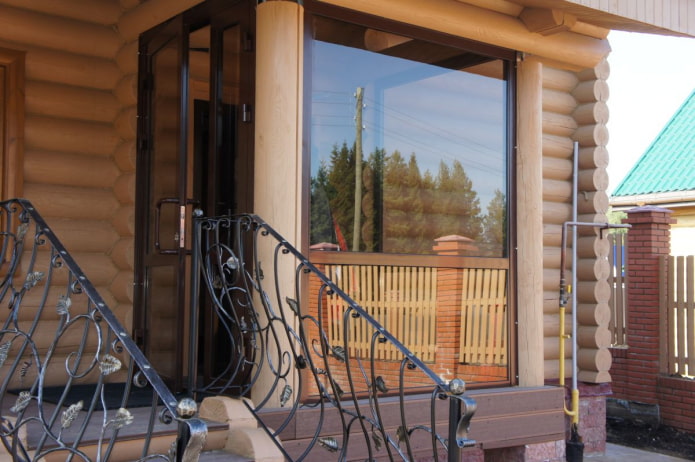
Extra expenses
Do not forget that any construction is extra expenses both for the construction itself and for subsequent maintenance. Given that the effectiveness of a vestibule is rather questionable in the current conditions, a reasonable question arises: is it worth investing in a relatively useless extension?
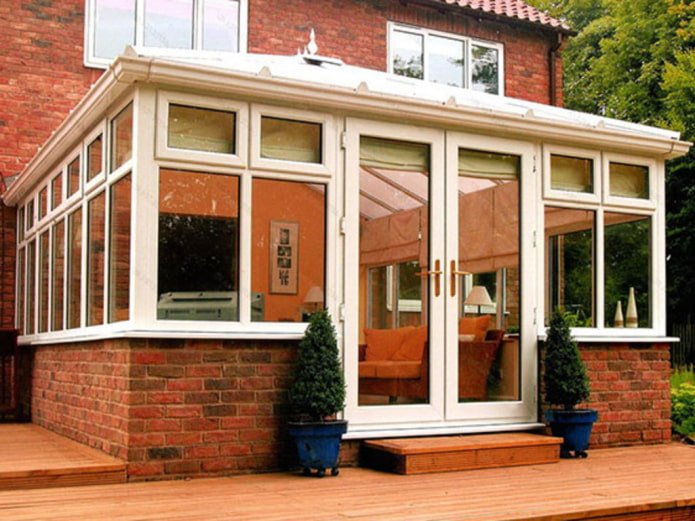
In conclusion, I would like to say that the decision to build a vestibule should be made based on the specific situation, since it is influenced by a number of factors. In addition, we should not forget that the climatic conditions in Russia can vary greatly in different regions. After all, a country house somewhere in the South of Russia is completely different from a house in distant Siberia.
Now reading:
- Bedroom design 8 sq m: creative ideas and interior examples.
- Kitchen Design 2×3 (39 photos): Furniture Arrangement and Tips for Visual Expanding
- Kitchen-living room design 14 sq m: useful guide and 40 interior photos
- Yellow Kitchens: 61 Photos in Interiors and Creative Design Solutions
- Wooden arches in the interior: more than 40 photos and stylish solutions for decoration.